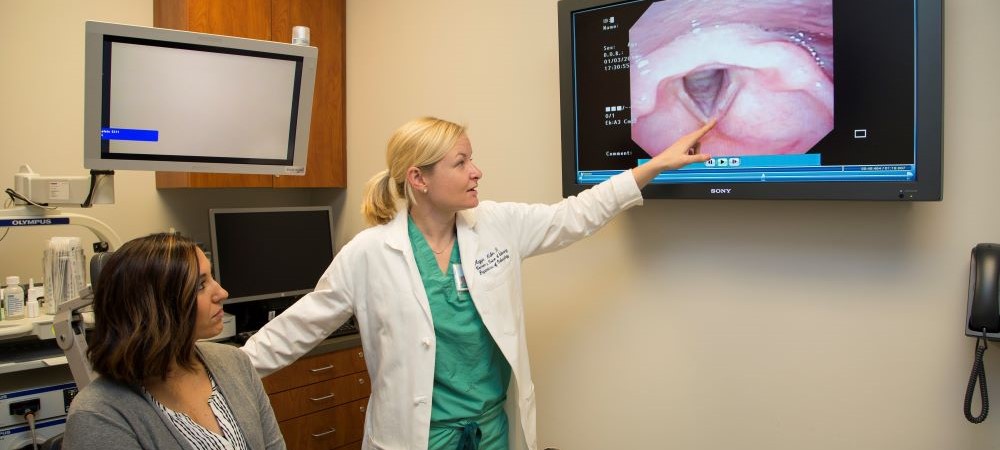Ways ENT Clinics Provide Comprehensive Allergy and Sinus Care
Wiki Article
Checking out the Field of Otolaryngology: What to Expect When You Seek Advice From an ENT
Otolaryngology, commonly referred to as ENT, incorporates the diagnosis and treatment of throat, nose, and ear problems. ENT Clinic. For those experiencing related problems, getting in touch with an ENT specialist can offer clarity and relief. Comprehending what to anticipate throughout such consultations is essential for reliable interaction and treatment. This summary will certainly describe crucial elements of the ENT experience, consisting of usual factors for check outs and the processes included in medical diagnosis and therapyUnderstanding Otolaryngology: A Summary
Otolaryngology, commonly described as ENT (Throat, nose, and ear) medication, is a specific branch of medicine that focuses on the diagnosis and treatment of problems affecting these essential areas of the human body. This field incorporates a vast array of disorders, including those pertaining to hearing, equilibrium, respiratory function, and speech. Otolaryngologists are trained to take care of both medical and medical therapies, making use of advanced strategies and modern technologies. Their experience expands past standard ailments, addressing concerns such as allergic reactions, sinus infections, and hearing loss. Additionally, they play an essential duty in the management of head and neck cancers cells, giving extensive care tailored to individual person needs. Overall, otolaryngology stays essential for preserving wellness and lifestyle in affected people.Typical Reasons to See an ENT Professional
Lots of people look for the expertise of an ENT professional for a variety of factors, mirroring the diverse nature of problems that affect the throat, ear, and nose. Typical concerns consist of chronic sinus problems, which often leads to consistent nasal blockage and facial pain. Allergies and their connected symptoms, such as itching and sneezing, also trigger brows through to these professionals. Hearing loss, whether sudden or steady, is another significant reason for assessment. On top of that, individuals may look for examination for throat problems, consisting of consistent hoarseness or swallowing problems. Rest apnea, identified by disturbed breathing during rest, is regularly dealt with by ENT experts too. Each of these problems highlights the value of specialized care in handling complicated ENT-related health problems.Planning for Your ENT Visit
When planning for an ENT appointment, it is necessary to gather appropriate information and think about any certain concerns. Clients should assemble a comprehensive case history, including previous ear, nose, or throat issues, surgical procedures, and existing drugs. Recording symptoms-- such as severity, duration, and regularity-- can offer useful understandings for the ENT expert. In addition, individuals should prepare a listing of inquiries they desire to ask, guaranteeing that all concerns are addressed during the check out. Bringing along any kind of pertinent medical documents or test results can even more help the ENT in understanding the client's condition. Patients should confirm their consultation information, including location, day, and time, to minimize any final complication. Correct prep work can improve the efficiency of the examination and bring about better results.
What to Anticipate Throughout the Appointment
As the appointment starts, the client can expect to take part in a complete conversation with the ENT professional about their symptoms and clinical history. The expert will certainly ask about the duration, regularity, and extent of signs and symptoms such as hearing loss, nasal blockage, or sore throat. In addition, the person's previous medical conditions, medicines, and any type of pertinent family background will be examined, assisting the expert in forming a total understanding of the individual's health and wellness. The ENT may additionally ask concerning lifestyle elements, such as exposure to toxic irritants or allergens. This open discussion establishes a structure for the assessment, making certain that the client's worries are addressed and establishing the phase for any necessary assessments or referrals for therapy.Diagnostic Examinations and Treatments in Otolaryngology
A series of diagnostic examinations and procedures are important in otolaryngology to properly examine and detect conditions impacting the ear, nose, and throat. Usual tests include audiometry, which gauges hearing function, and tympanometry, assessing middle ear pressure. Nasal endoscopy allows visualization of the nasal passages and sinuses, while laryngoscopy analyzes the throat and singing cords. Imaging strategies, such as CT scans and MRIs, supply in-depth views of head and neck structures. Allergic reaction screening might also be carried out to recognize triggers for sinus or respiratory concerns. These analysis devices make it possible for ENT specialists to establish a complete understanding of clients' problems, guaranteeing customized and reliable monitoring strategies. Correct diagnosis is crucial for effective treatment outcomes in otolaryngology.Therapy Options Used by ENT Specialists
ENT professionals provide a variety of treatment choices tailored to deal with particular conditions affecting the nose, throat, and ear. These therapies vary from traditional methods, such as drug and lifestyle modifications, to more invasive treatments. Allergies may be handled with antihistamines or immunotherapy, while chronic sinus problems may need nasal corticosteroids or sinus surgical procedure. For hearing loss, ENT experts frequently suggest hearing help or surgical interventions like cochlear implants. In instances of throat disorders, choices can consist of speech treatment or surgical treatments to remove obstructions. Furthermore, they might give assistance for managing rest apnea, consisting of the use of CPAP devices or surgical treatments. Generally, the goal is to improve people' quality of life through individualized treatment and effective treatment methods.When to Seek Follow-Up Treatment With an ENT
When to seek follow-up care with an ENT expert is vital for handling continuous signs or difficulties related to ear, throat, and nose problems, acknowledging. Individuals ought to consider setting up a follow-up consultation if signs and symptoms persist regardless of initial therapy, such as chronic ear discomfort, nasal blockage, or throat pain. Changes in hearing, balance concerns, or unusual nasal discharge may likewise call for further assessment. In addition, if a patient experiences adverse effects from prescribed medications or has gone through a surgery, follow-up treatment is very important to monitor recovery and deal with any issues. Timely assessments can guarantee reliable administration of problems, avoid possible complications, and give peace of mind pertaining to one's health. Seeking follow-up treatment advertises aggressive wellness management in otolaryngologyFrequently Asked Questions
What Credentials Should I Seek in an ENT Specialist?
When looking for an ENT professional, one ought to seek board accreditation, appropriate experience, and solid person reviews. In addition, reliable interaction abilities and a compassionate method can considerably enhance the total treatment experience.Just how Do I Select the Right ENT for My Requirements?
Choosing the right ENT professional includes assessing their qualifications, experience, and individual testimonials. It is important to ponder their interaction style and method to therapy, guaranteeing they align with the individual's specific health and wellness demands and preferences.Are There Any Type Of Threats Linked With ENT Procedures?
The threats associated with ENT procedures might include infection, blood loss, anesthetic complications, and potential damages to surrounding frameworks. Individuals must go over these dangers with their doctor to understand specific concerns and warranty notified choices.Exactly How Can I Take Care Of Anxiety Prior To My ENT Visit?
To take care of stress and anxiety prior to a consultation, individuals can exercise deep breathing exercises, visualize positive end results, prepare inquiries beforehand, and look for support from pals or family members, promoting a feeling of reassurance and peace.
What Should I Do if I Experience Adverse Effects From Treatment?
If side impacts from treatment happen, the Otolaryngologist person needs to without delay report them to their medical care service provider. Otolaryngologist. Modifications to therapy or added interventions may be required to ensure safety and efficiency in handling their condition. As the consultation begins, the client can anticipate to engage in a complete discussion with the ENT expert concerning their signs and clinical background. These diagnostic tools make it possible for ENT experts to create an extensive understanding of people' conditions, ensuring tailored and effective monitoring strategies. ENT experts offer a range of treatment options customized to resolve particular conditions affecting the throat, nose, and ear. When seeking an ENT professional, one need to look for board accreditation, relevant experience, and solid client reviews. Selecting the appropriate ENT specialist entails examining their qualifications, experience, and person testimonialsReport this wiki page